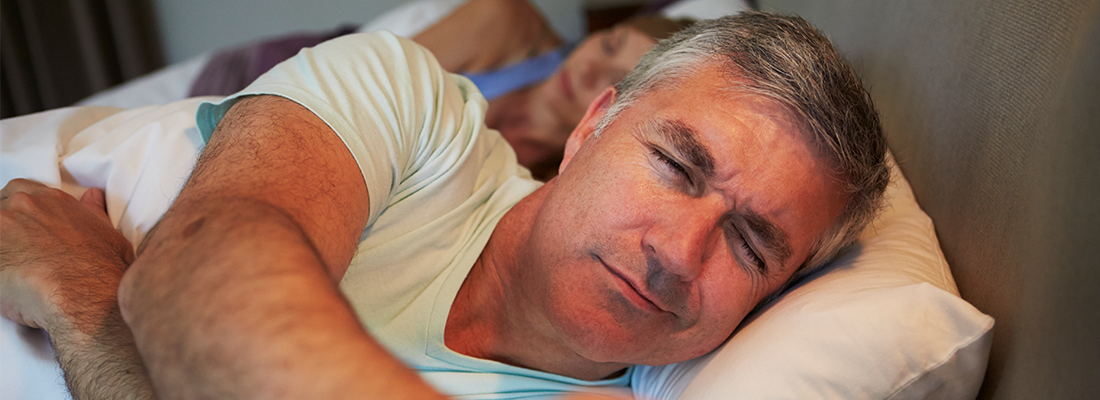Sleeping patterns change as we grow older – what’s going on?Sleeping patterns change as we grow older – what’s going on?
According to Harvard Medical School’s HealthySleep web site, the amount of sleep we need changes over a typical lifetime, decreasing as we age. From the 16 to 20 hours a newborn sleeps in an average day, daily sleep time declines through childhood to around 11 hours. Adolescents need – but don’t always get – around nine hours of sleep. Through middle age adults need about eight hours, and although elderly people require seven to eight hours, it can be much more difficult for them to achieve that minimum. The consequences of sleep deficit can be costly, ranging from lost productivity to increased accidents to serious health problems.
After some 50 years of study, medical science has determined that sleep involves much more than just physical rest. Beginning with observations of eye movement, heart rate and respiration during sleep, and progressing through measurement of brain waves to the dramatic visualization of brain activity achieved with fMRI, scientists can closely track what happens in our brains and bodies during several different sleep stages.
NREM – Non-rapid eye movement sleep actually includes three different levels of brain activity, from stage 1 through 4, diving into deeper unconsciousness from dozing through near-hibernation.
REM – Rapid eye movement sleep is the dreaming stage, in which brain activity rises dramatically. Luckily for us and our spouses, this stage includes release of brain chemicals that suppress physical activity to near paralysis (the medical term is atonia). This is one reason we have dreams in which we feel unable to move, but it keeps most sleepers from thrashing about, risking physical harm, while dreaming.
The sleep cycle runs through all these stages in 90 to 110 minutes, and repeats several times in a typical night of sleep. Babies in their first year spend most of their sleeping hours in REM; the percentage of REM-stage sleep declines as we age.
Another important component of sleep is our internal sleep clock, called the circadian pacemaker. This regulates the timing of sleep and its relationship to our waking hours. Teenagers, for example, experience a dramatic change in the time they feel sleepy, as anyone knows who has ever tried to get one to go to bed on a school night – or wake up on a school morning. Exposure to artificial lighting, as well as TV, computer and phone screens, can contribute to this disruption. Older people my find they wake up earlier as they age, but sometimes can’t fall asleep early enough to get the hours they need in one block.
For many people, a typical school or work week involves a growing deficit of sleep from Monday through Friday. We may try to catch up on sleep at the weekend, but this can push the internal clock further out of sync with their weekday schedule.
The quality of sleep can deteriorate as we age, sometimes due to health or physical changes, and sometimes because of our sleeping partner’s own difficulties with sleep. Snoring can be a big problem. The causes vary: Nasal blockage due to sinus irritation, allergy or deviations in the nasal passages (septum, turbinates or nasal valves) can cause snoring. Also, being overweight can result in excess tissue at the back of the throat, which contributes to the severe and potentially dangerous condition of Obstructive Sleep Apnea. Snoring disrupts our progress through stages of sleep, which can lead to daytime fatigue, and apnea is implicated in life-threatening problems such as stroke and heart disease.
One common remedy for OSA is an apparatus that pushes air gently through the airway, applying a continuous feed meant to help prevent the interruption of apnea. Today’s CPAP (Continuous Positive Airway Pressure) machines are quieter and more comfortable than earlier ones, but many people with OSA find them disruptive of sleep, and tedious to clean and maintain.
Good sleep habits are beneficial at any age, and especially important for older people who have trouble sleeping. These include keeping a regular bedtime, reducing caffeine intake, and keeping the bedroom cool, dark and comfortable. Winding down before bedtime can help. Don’t eat or drink alcohol for a couple of hours, and switch off phones, laptops and TV for at least half an hour before going to bed.
Looking for an extra measure of relaxation to promote good sleep? Try the 4 – 7 – 8 breathing method:
- Exhale completely through your mouth
- Inhale gently through your nose, using the belly muscles, while mentally counting a slow one-two-three-four
- Hold your breath for a slow mental count from one to seven
- Exhale through your mouth while mentally counting to eight
Repeat this sequence three more times.
See this Noselife article for more on how better breathing can help you fall asleep

